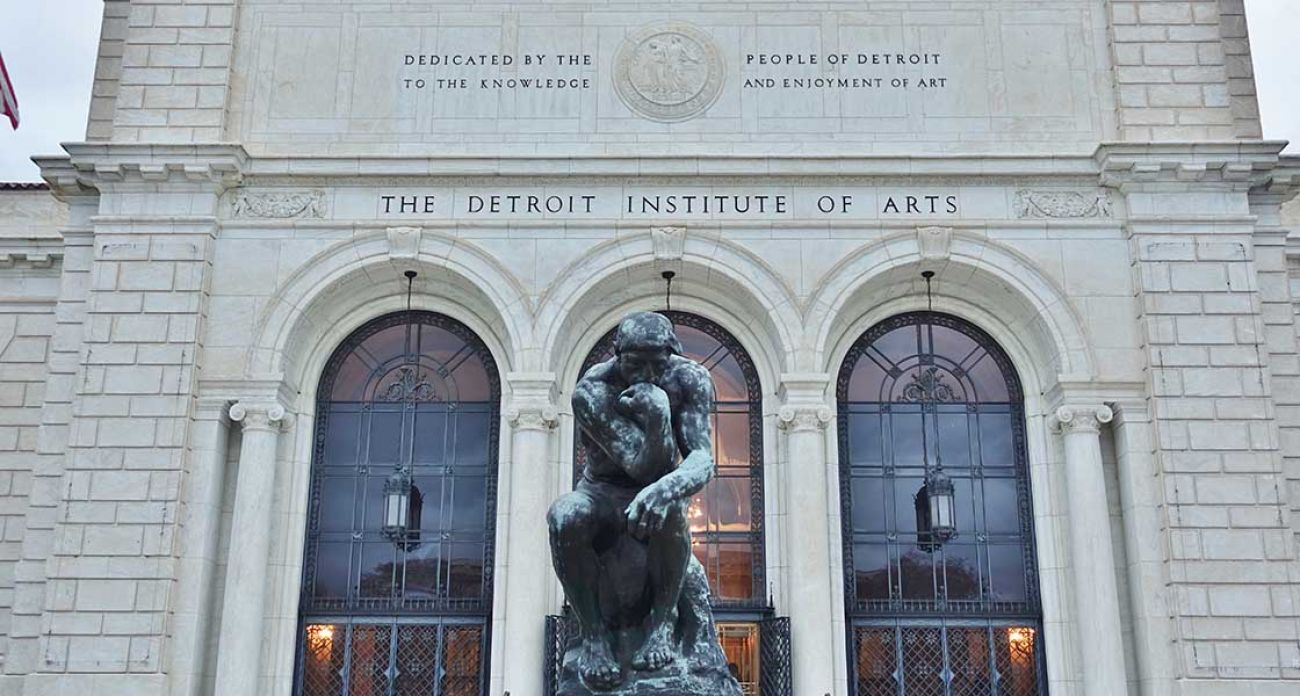Michigan government 101: Want more taxes? Hold elections when few vote

Next March, fully two years before its current property tax expires, the Detroit Institute of Arts wants to ask voters in southeast Michigan for more money.
If the DIA wants the tax to pass, choosing the March 2020 primary was wise.
“It’s a no-brainer,” said Michigan pollster Bernie Porn and president of EPIC-MRA in Lansing.
That’s because it’s the presidential primary, and the DIA’s 10-year, 0.2 mill property tax will likely be decided in Wayne, Oakland and Macomb counties by a heavily Democratic electorate since President Donald Trump faces token opposition in the Republican primary. And Democrats, polls and election results show, are more tax-friendly, Porn said.
Besides the DIA, the City of Detroit wants to ask voters in March for a $250 million bond for blight removal and the Macomb Intermediate School District intends to ask for a county-wide 1.9 mill tax increase.
Foes say the scheduling of those elections are anti-democratic and designed to suppress votes.
“It’s avoiding voters and picking the voters they want,” said Leon Drolet, a Macomb County commissioner and founder of the Michigan Taxpayers Alliance.
The March election is a newer twist on an old, controversial method of increasing the prospects for tax proposals by scheduling them during sparsely attended elections. The practice is so divisive that Michigan legislators tried, unsuccessfully, in 2017 to require all tax requests be placed only on November general election ballots.
“If something is as important as raising people’s property taxes, we should put it on (at) the election of high turnout rather than low turnout,” said state Rep. James Lower, R, Greenville, a co-sponsor of the bill.
Michigan elections officials don’t track the scheduling of local bond elections, but schools and municipalities often schedule tax requests throughout the year. The results can vary as widely as turnout. In May 2018, for instance, a millage failed by three votes for Van Dyke Public Schools in southern Macomb County. Last November, during the gubernatorial election, a similar proposal for the district passed overwhelmingly when turnout dramatically increased.
The DIA defended its scheduling of elections, saying it would cost too much to send campaign literature to likely voters during heavy-turnout primary and general elections next year and 2022. Roughly three times more voters are expected in the general election than the presidential primary, said David Flynn, the DIA’s senior vice president for public and community affairs, .
The other alternative, 2021, would have cost the museum $500,000 to host a special election since there are no statewide issues on the ballot.
Flynn argued that nothing is stopping voters from casting ballots.
“Everybody has a right to vote in every election,” he said.
Turnout in March likely will be a fraction of general elections. Last November’s gubernatorial election saw 4.3 million voters. Michigan’s heavily contested presidential primaries in 2016 saw a total of 2.5 million votes – 1.2 million for Dems and 1.3 million for Republicans, who may have less incentive to vote with Trump a seeming lock for renomination.
The DIA tax would raise about $26 million a year and allow free general admission to residents of participating counties.
Wayne County has already put it on the ballot and Oakland County art commission officials will consider it Nov. 21; the DIA is still talking with Macomb officials. The decision to put it on the March ballot must be made by Dec. 17, Flynn said.
For decades, taxing bodies like school districts and municipalities have chosen lower-turnout primaries for tax increases. And it isn’t a Michigan phenomenon – voters in Toledo, Ohio, will likely consider an increase in the city income tax in March.
Porn said polling bears out the reasons why: If you can get a Democrat-leaning pool of voters, you’re getting a group more sympathetic to tax increases. And conversely, big turnout typically attracts more “no” votes, he said.
Lower, the state representative, is a former village manager and a former Ionia County commissioner who once worked for a consulting firm that did polling for groups that wanted to pass millages.
He said he knows that school boards and cities put millage requests on the ballot when they feel they have the best shot of passage, even if only a tiny fraction of the overall community votes.
“Of course they’re doing that,” Lower said.
The Legislature consolidated elections in 2015, eliminating February elections in a bill signed by then-Gov. Rick Snyder. Supporters said it would reduce costs; opponents, including school officials, argued it would limit the ability to plan budgets by reducing opportunities to ask voters for money. Others said it would limit “democracy” by cutting one of four elections each year.
Macomb County has its own county-wide request coming up, to replace its aging jail. The board of commissioners considered an election in March – they too were aware that it could make it easier, Drolet said. But the board opted for the August primary.
Even Democrats supported the switch even though March would have made it more likely to pass, said Democrat Rob Mijac, a commissioner from Sterling Heights.
“Everybody’s paying their taxes,” said Mijac. “Why not have more people vote on it?”
“In a democracy, why would you not want that?”
See what new members are saying about why they donated to Bridge Michigan:
- “In order for this information to be accurate and unbiased it must be underwritten by its readers, not by special interests.” - Larry S.
- “Not many other media sources report on the topics Bridge does.” - Susan B.
- “Your journalism is outstanding and rare these days.” - Mark S.
If you want to ensure the future of nonpartisan, nonprofit Michigan journalism, please become a member today. You, too, will be asked why you donated and maybe we'll feature your quote next time!

